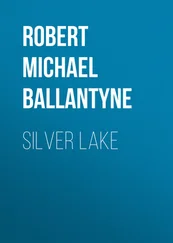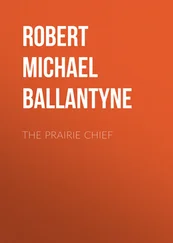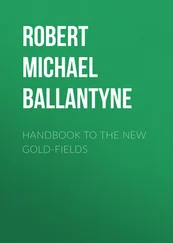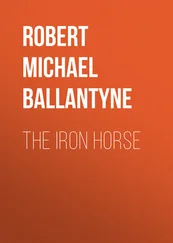Robert Michael Ballantyne - Black Ivory
Здесь есть возможность читать онлайн «Robert Michael Ballantyne - Black Ivory» — ознакомительный отрывок электронной книги совершенно бесплатно, а после прочтения отрывка купить полную версию. В некоторых случаях можно слушать аудио, скачать через торрент в формате fb2 и присутствует краткое содержание. Жанр: foreign_children, literature_19, foreign_antique, foreign_prose, на английском языке. Описание произведения, (предисловие) а так же отзывы посетителей доступны на портале библиотеки ЛибКат.
- Название:Black Ivory
- Автор:
- Жанр:
- Год:неизвестен
- ISBN:нет данных
- Рейтинг книги:5 / 5. Голосов: 1
-
Избранное:Добавить в избранное
- Отзывы:
-
Ваша оценка:
- 100
- 1
- 2
- 3
- 4
- 5
Black Ivory: краткое содержание, описание и аннотация
Предлагаем к чтению аннотацию, описание, краткое содержание или предисловие (зависит от того, что написал сам автор книги «Black Ivory»). Если вы не нашли необходимую информацию о книге — напишите в комментариях, мы постараемся отыскать её.
Black Ivory — читать онлайн ознакомительный отрывок
Ниже представлен текст книги, разбитый по страницам. Система сохранения места последней прочитанной страницы, позволяет с удобством читать онлайн бесплатно книгу «Black Ivory», без необходимости каждый раз заново искать на чём Вы остановились. Поставьте закладку, и сможете в любой момент перейти на страницу, на которой закончили чтение.
Интервал:
Закладка:
The men looked intelligently at each other, and nodded.
Then Harold said “Zanzibar,” and pointed in the direction in which he supposed that island lay.
Again the men glanced at each other, and nodded. Harold next said “Boat—dhow,” and pointed towards the creek, which remark and sign were received as before.
“Good,” he continued, slapping himself on the chest, and pointing to his companion, “ I go to Zanzibar, he goes, she goes,” (pointing to the girl), “ you go, and Yoosoof goes—all in the dhow together to Zanzibar—to-night—when moon goes down. D’ee understand? Now then, come along and have some rice.”
He finished up by slapping one of the men on the shoulder, and lifting the kettle off the fire, for the rice had already been cooked and only wanted warming.
The men looked once again at each other, nodded, laughed, and sat down on a log beside the fire, opposite to the Englishmen.
They were evidently much perplexed by the situation, and, not knowing what to make of it, were disposed in the meantime to be friendly.
While they were busy with the rice, Disco gazed in silent wonder, and with intense pity, at the slave-girl, who sat a little to one side of her guardians on a mat, her small hands folded together resting on one knee, her head drooping, and her eyes cast down. The enthusiastic tar found it very difficult to restrain his feelings. He had heard, of course, more or less about African slavery from shipmates, but he had never read about it, and had never seriously given his thoughts to it, although his native sense of freedom, justice, and fair-play had roused a feeling of indignation in his breast whenever the subject chanced to be discussed by him and his mates. But now, for the first time in his life, suddenly and unexpectedly, he was brought face to face with slavery. No wonder that he was deeply moved.
“Why, Mister Seadrift,” he said, in the confidential tone of one who imparts a new discovery, “I do honestly confess to ’ee that I think that’s a pretty girl!”
“I quite agree with you,” replied Harold, smiling.
“Ay, but I mean really pretty, you know. I’ve always thought that all niggers had ugly flat noses an’ thick blubber lips. But look at that one: her lips are scarce a bit thicker than those of many a good-looking lass in England, and they don’t stick out at all, and her nose ain’t flat a bit. It’s quite as good as my Nancy’s nose, an’ that’s sayin’ a good deal, I tell ’ee. Moreover, she ain’t black—she’s brown.”
It is but justice to Disco to say that he was right in his observations, and to explain that the various negro tribes in Africa differ very materially from each other; some of them, as we are told by Dr Livingstone, possessing little of what, in our eyes, seems the characteristic ugliness of the negro—such as thick lips, flat noses, protruding heels, etcetera,—but being in every sense handsome races of humanity.
The slave-girl whom Disco admired and pitied so much belonged to one of these tribes, and, as was afterwards ascertained, had been brought from the far interior. She appeared to be very young, nevertheless there was a settled expression of meek sorrow and suffering on her face; and though handsomely formed, she was extremely thin, no doubt from prolonged hardships on the journey down to the coast.
“Here, have somethin’ to eat,” exclaimed Disco, suddenly filling a tin plate with rice, and carrying it to the girl, who, however, shook her head without raising her eyes.
“You’re not hungry, poor thing,” said the seaman, in a disappointed tone; “you look as if you should be. Come, try it,” he added, stooping, and patting her head.
The poor child looked up as if frightened, and shrank from the seaman’s touch, but on glancing a second time in his honest face, she appeared to feel confidence in him. Nevertheless, she would not touch the rice until her guardians said something to her sternly, when she began to eat with an appetite that was eloquent.
“Come, now, tell us what your name is, lass,” said Disco, when she had finished the rice.
Of course the girl shook her head, but appeared to wish to understand the question, while the Portuguese laughed and seemed amused with the Englishman’s eccentricities.
“Look here, now,” resumed the tar, slapping his own chest vigorously, “Disco, Disco, Disco, that’s me—Disco. And this man,” (patting his companion on the breast) “is Harold, Harold, that’s him—Harold. Now, then,” he added, pointing straight at the girl, “you—what’s you name, eh?”
A gleam of intelligence shot from the girl’s expressive eyes, and she displayed a double row of beautiful teeth as in a low soft voice she said— “Azinté.”
“Azinté? come, that’s not a bad name; why, it’s a capital one. Just suited to ’ee. Well, Azinté, my poor girl,” said Disco, with a fresh outburst of feeling, as he clenched his horny right hand and dashed it into the palm of his left, “if I only knew how to set you free just now, my dear, I’d do it—ay, if I was to be roasted alive for so doin’. I would!”
“You’ll never set anybody free in this world,” said Harold Seadrift, with some severity, “if you go on talking and acting as you have done to-day. If these men had not, by good fortune, been ignorant of our language, it’s my opinion that they would have blown our brains out before this time. You should restrain yourself, man,” he continued, gradually dropping into a remonstrative and then into an earnestly confidential tone; “we are utterly helpless just now. If you did succeed in freeing that girl at this moment, it would only be to let her fall into the hands of some other slave-owner. Besides, that would not set free all the other slaves, male and female, who are being dragged from the interior of Africa. You and I may perhaps do some small matter in the way of helping to free slaves, if we keep quiet and watch our opportunity, but we shall accomplish nothing if you give way to useless bursts of anger.”
Poor Lillihammer was subdued.
“You’re right Mister Seadrift, you’re right, sir, and I’m a ass. I never could keep my feelings down. It’s all along of my havin’ bin made too much of by my mother, dear old woman, w’en I was a boy. But I’ll make a effort, sir; I’ll clap a stopper on ’em—bottle ’em up and screw ’em down tight, werry tight indeed.”
Disco again sent his right fist into the palm of his left hand, with something like the sound of a pistol-shot to the no small surprise and alarm of the Portuguese, and, rising, went out to cool his heated brow in the open air.
Chapter Two.
Yoosoof’s “Black Ivory.”
When Yoosoof entered the woods, as before stated, for the purpose of looking after his property, he followed a narrow footpath for about half a mile, which led him to another part of the same creek, at the entrance of which we introduced him to the reader. Here, under the deep shadow of umbrageous trees, floated five large Arab boats, or dhows, similar to the one which has been already referred to. They were quite empty, and apparently unguarded, for when Yoosoof went down the bank and stood on a projecting rock which overlooked them, no one replied to his low-toned hail. Repeating it once, and still receiving no answer, he sat quietly down on the rocks, lighted a small pipe, and waited patiently.
The boats, as we have said, were empty, but there were some curious appliances in them, having the appearance of chains, and wristlets, and bars of iron running along and fixed to their decks, or rather to the flooring of their holds. Their long yards and sails were cleared and ready for hoisting.
Читать дальшеИнтервал:
Закладка:
Похожие книги на «Black Ivory»
Представляем Вашему вниманию похожие книги на «Black Ivory» списком для выбора. Мы отобрали схожую по названию и смыслу литературу в надежде предоставить читателям больше вариантов отыскать новые, интересные, ещё непрочитанные произведения.
Обсуждение, отзывы о книге «Black Ivory» и просто собственные мнения читателей. Оставьте ваши комментарии, напишите, что Вы думаете о произведении, его смысле или главных героях. Укажите что конкретно понравилось, а что нет, и почему Вы так считаете.












